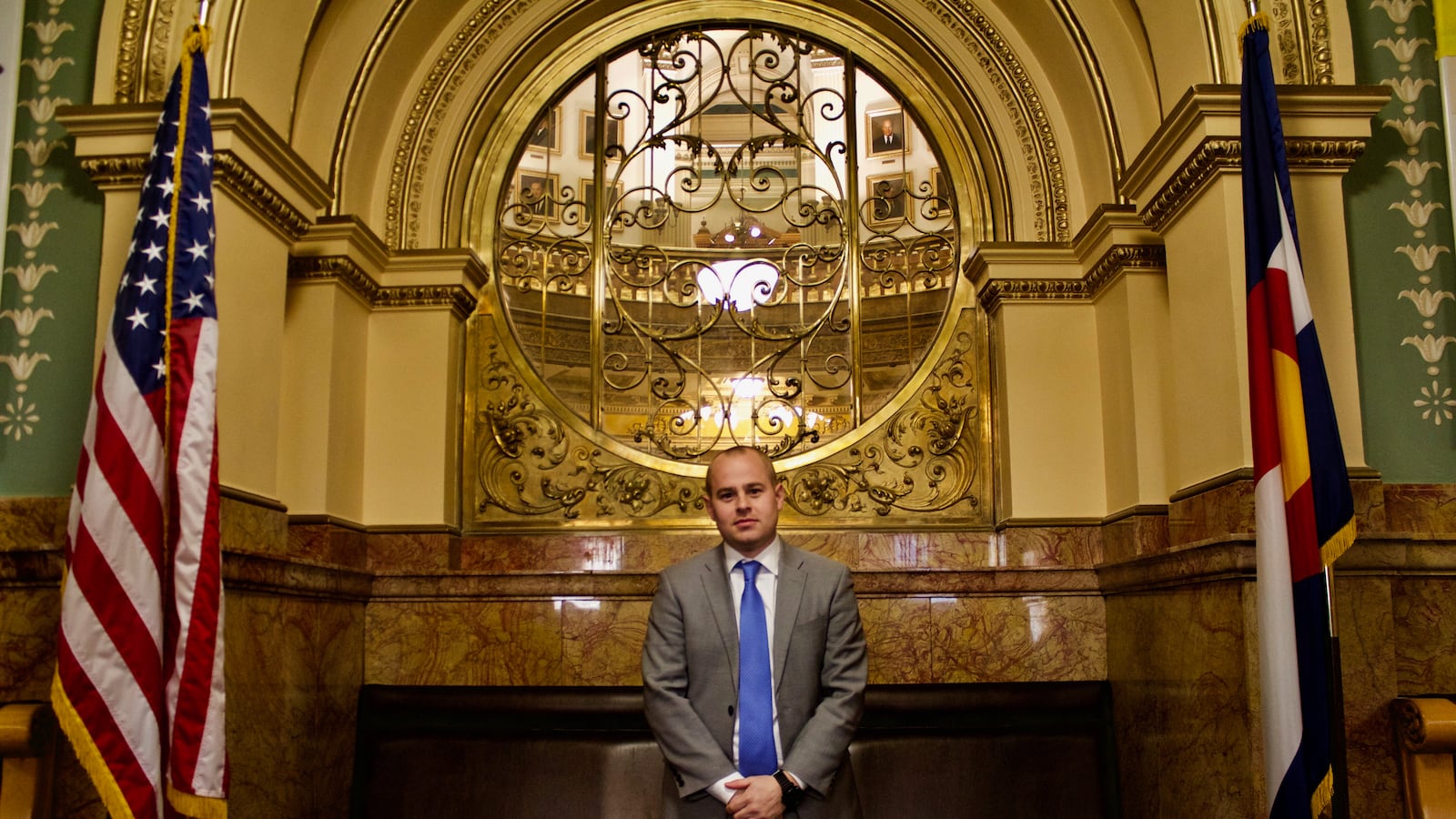A small group of well-established Colorado Republicans are aiming to make education reform a top priority for the GOP again.
Ready Colorado, a political nonprofit, has been quietly working behind the scenes for two years supporting politicians and policies that expand school choice and protect school accountability — while challenging Republicans who won’t.
Now, the group is taking on a higher profile by hiring Luke Ragland, a well-known figure in Colorado’s education reform community, to be the face of the organization as its first president.
Ready Colorado was born out of the state’s testing debates in 2015. It was founded by Josh Penry, a former Republican state lawmaker who co-sponsored some of the state’s most ambitious education reform laws, and Tyler Sandberg, a former aide to Congressman Mike Coffman.
The two Republicans say they saw the need for Ready Colorado as they watched Republicans retreat from — and in some cases attack — the system of academic standards, tests and accountability measures for schools and teachers GOP lawmakers helped create between 2008 and 2012.
Since 2015, the organization has gone on to play a role in school board and legislative races, racking up an impressive financial war chest and early wins.
One of its first moves outside of the Capitol was supporting two candidates that supported expanding charter schools in Aurora Public Schools, which hasn’t historically welcomed charters. One of the candidates, Monica Colbert, won.
In 2016, Ready Colorado helped former state Rep. Bob Gardner defeat Rep. Gordon Klingenschmitt, a firebrand conservative known for making outlandish comments, in a Colorado Springs Senate primary race by pumping $100,000 into an independent political committee called Colorado Right Now.
Ready Colorado contributed $423,000 to committees created to help elect Republicans, including the Douglas County Education Alliance, Rural Voices for Education and the Senate Majority Fund.
Because Ready Colorado receives nonprofit status from the federal government, it’s not required to disclose its donors — and doesn’t.
The group also provided political consulting to an organization supporting former state Rep. Kevin Priola, who went on to win a seat in the state Senate. Priola’s victory helped Republicans keep control of the Senate by a one-vote majority.
“Our influence is not always defined in hard dollars,” Sandberg said.
Ragland’s described his mission this legislative session as about being bold.
But the organization faces tough challenges. A number of Republicans in the House and the Senate still want to back away from the positions Ready Colorado supports. And because the organization explicitly supports Republican candidates, it’s unclear how it will be able to work with Democrats who support some of the same reforms.
Ragland and the nonprofit’s contract lobbyist will be supporting legislation that is pro-charter school and will oppose any bills that chips away at either the state’s school accountability system or teacher evaluation law. The group also will oppose any efforts to drastically rewriting the state’s academic standards or gut its testing system.
“Parents can’t afford to go another year without good information,” Ragland said, referring to the recent one year pause in the state’s accountability system that was needed to adjust to the new PARCC tests.
Ragland said he hopes to work with the state’s existing and sizable education lobby. The types of changes Ready Colorado wants to see one day — including changes to the state’s school funding formula — can’t be achieved by “poking people in the eye,” Ragland said. “Everything has to be done collaboratively.”
Still, Ragland said he sees his role in part as pushing back against the state’s largest education advocacy groups such as the state’s teachers union, and the associations of school executives and school boards.
“Parents, students and taxpayers should be the focus, not the associations of adults,” he said. “It’s about giving as much power as possible to the people closest to the child.”
Lisa Escarcega, the executive director of the Colorado Association of School Executives, said she found Ragland’s slight at associations “odd.”
“CASE’s missions — and you can look it up — is to empower education leaders,” she said.
Before Ready Colorado had made a name for itself, members of the education lobby jokingly nicknamed the group “RFER,” a play on the acronym for Democrats for Education Reform, a well-financed and influential nonprofit.
Jen Walmer, Colorado state policy director for Democrats for Education Reform, said while there might be similarities between the organizations’ agendas there are also stark differences that matter to Colorado children.
“There are going to be times when we agree, like teacher accountability and high-quality charters,” she said, adding that DFER opposes using taxpayer dollars to allow students to enroll in private schools.
DFER also supports universal preschool, something Republicans generally oppose. Walmer also pointed to philosophical differences on issues outside of the education debate that influence young children such as climate change and health care as areas where Ready and DFER will split on the issues and candidates they support.
Ragland echoed Walmer: “This is not a DFER copy.”
Ragland, 31, grew up in southwestern Colorado and earned a bachelor’s degree from Colorado State University and law degree from the University of Colorado’s School of Law.
During his time at Colorado Succeeds, Ragland represented the business community on a variety of committees including a task force that made recommendations on reforming the state’s standardized testing system.
“Colorado is always going to be a mixed state politically,” Ragland said. “But I think Republicans have a unique opportunity to advance a new and positive vision for Colorado schools.”
Update: This post has been updated to reflect that Ready Colorado helped an organization supporting the election of Kevin Priola, not the candidate himself.

